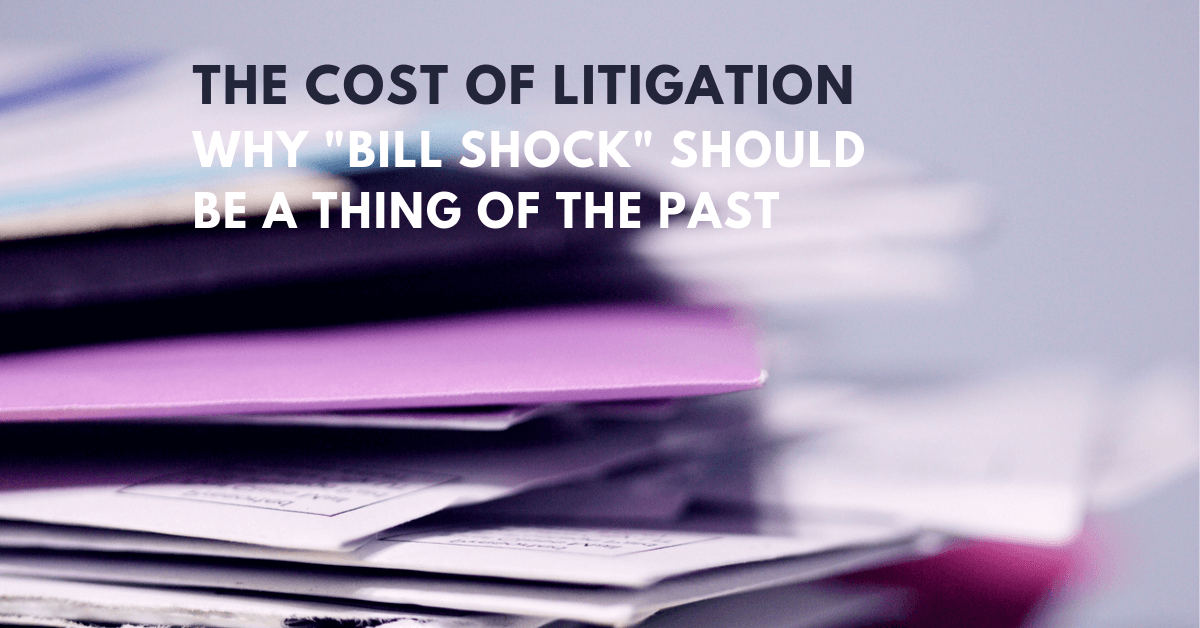The cost of litigation can be overwhelming. We all know it, but it seems to be something the legal industry in Australia just isn’t that interested in addressing.
Traditionally, law firms and lawyers have charged their clients by the time spent, 6-minute units or by the hour. However, in modern litigation and legal disputes, clients are expressing the view that in order to make an informed financial decision they need accurate information on the expected costs and the timing of those costs to work out if it is in their best interest commercially to engage in or defend a legal dispute.
Here at Aptum, we take pricing so seriously that we built our process around making sure our clients had complete clarity from the outset and should never experience the dreaded “bill shock”. What is “bill shock”? It is that horrible feeling of opening your invoice and wondering how on earth your costs had become so high.
Bill shock is undoubtedly a primary (and primal) reason people seriously dislike using lawyers, particularly in contested commercial litigation. It goes to the very heart of trust, communication and proper service. You don’t have to go far to hear a story about someone receiving a higher bill than they expected, and lawyers have for too long relied on the glib response “but litigation is unpredictable, so…..”.
Our remedy? Value-based, aligned pricing.
We offer fixed, proportionate, value-based pricing, tailored to each individual matter and aligned to the client’s interests.
Time is not a measure of value. We ensure our price is based on the value that clients see in our service, enabling us to focus on outcomes, not process. This pricing model is critical to how we can provide a better service.
Prior to creating Aptum, it was clear to us that purely time-based pricing in the traditional way was a huge factor in creating poor outcomes and increasing the length of time that disputes take. Time-based pricing rewards inefficiency, stifles creativity and innovation, discourages open and collaborative thought, focuses on process over outcomes and alienates even the most sophisticated clients. Critically, it also regularly leads to situations where costs are completely out of proportion to outcomes.Everyone has heard the story of a dispute getting to the point where parties costs outstrip potential quantum. That is patently unacceptable and obviously unsustainable, and yet it continues to persist in commercial litigation.
For Aptum, our goal was to create a pricing model that overcame these key issues and gave clarity and certainty to our clients while aligning our services with the value of the outcome.
This “value” based approach is clearly very different from putting a price on our time.
At the end of the day, litigation is an asset. As such, you need to know how much you are going to need to spend to realise that asset. At its simplest level, anyone looking to engage a litigator needs to make a decision at the outset of the cost vs benefit analysis, and you can’t do that unless you know what you’re going to spend.
To find out more about how we can help give you clarity on both the process and your spend, please get in touch.




